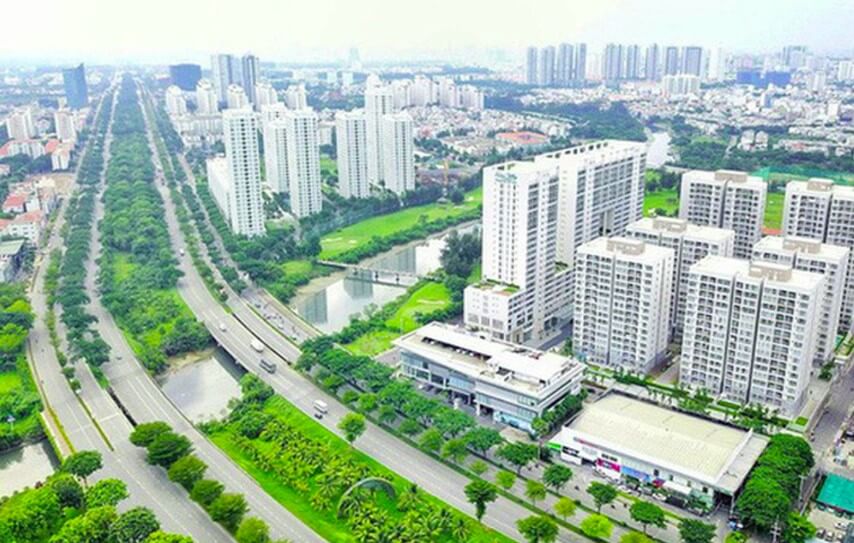Rights of the state over land under Vietnam Law

Vietnam Land Law has regulations on rights of the state over land. Let’s find out this issue with Lawyer X through the following situation: “Dear Lawyer! I know that in Vietnam land belongs to people’s ownership. I want to ask what are rights of Vietnam state over land as the representative of the land owner? What are responsibilities of the state for land? Thanks for answering me!”
Legal grounds
- 2013 Vietnam Land Law
Rights of the representative of the land owner
– To decide on land use master plans and plans.
– To decide on land use purposes.
– To prescribe land use quotas and land use terms.
– To decide on land expropriation and land requisition.
– To decide on land prices.
– To decide on grant of land use rights to land users.
– To decide on financial policies on land.
– To prescribe the rights and obligations of land users.
The State shall decide on land use purposes
The State shall decide on land use purposes through land use master plan and plans, and permit the change of land use purposes.
The State shall prescribe land use quotas and land use terms
– The State shall prescribe land use quotas, including allocation quotas for agricultural land, allocation quotas for residential land, recognition quotas for residential land use rights, and quotas for acquisition of agricultural land use rights.
– The State shall prescribe land use terms of the following forms:
+ Long and stable land use term;
+ Definite land use term.
– The State shall decide to recover land in the following cases:
+ For the purpose of national defense or security; socio-economic development in the national or public interest;
+ Due to violations of the land law;
+ Due to termination of land use in accordance with law, voluntary return of land, or the risk of threatening human life.
– The State shall decide to requisition land in case of extreme necessity to perform national defense and security tasks, or in the state of war or a state of emergency, or to prevent and combat natural disasters.
The State shall decide on land expropriation or requisition
– The State shall decide to expropriate land in the following cases:
+ For the purpose of national defense or security; socio-economic development for the national or public interest;
+ Land expropriation due to violations of the land law;
+ Land expropriation due to termination of land use in accordance with law, voluntary return of land, or the risk of threatening human life.
– The State shall decide to requisition land in case of extreme necessity to perform national defense and security tasks, or in cases of war or emergency circumstances, or to prevent and combat natural disasters.
The State shall grant land use rights to land users
The State shall grant land use rights to land users in the following forms:
– Decision on allocation of land without land use levy, and allocation of land with land use levy.
– Decision on lease of land with annual rental payment, and lease of land with one-off rental payment for the entire lease period.
– Recognition of land use rights.

The State shall decide on land prices
– The State shall prescribe the principles and methods for land valuation.
– The State shall promulgate land price brackets and tables, and decide on specific land prices.
The State shall decide on financial policies on land
– The State shall decide on policies on financial collection and spending related to land.
– The State shall prescribe the added value from land which does not originate from land user’s investment through tax polices, land use levy, land rental, investments in infrastructure, and support policies for those whose land is expropriated.
The State shall prescribe the rights and obligations of land users
The State shall prescribe the rights and obligations of land users in conformity with the forms of land allocation, land lease, recognition of land use rights, land use origin and financial obligations of land users.
– The National Assembly shall promulgate laws and resolutions on land; decide on national land use master plans and plans; and exercise the power of supreme oversight of land management and use nationwide.
– People’s Councils at all levels shall exercise the right to adopt local land use master plans and plans before submitting them to competent agencies for approval; to adopt land price tables and approve land expropriation to implement socio-economic development projects in the national or public interest in their localities, according to their competence prescribed in this Law; and to oversee the implementation of the land law in their localities.
– The Government and People’s Committees at all levels shall exercise the rights of the land owner representative according to their competence prescribed in this Law.
Contents of state management of land
– Promulgating legal documents on land management and use and organizing the implementation thereof.
– Determining administrative boundaries, compiling and managing administrative boundary records and making administrative maps.
– Surveying, measuring, making cadastral maps, current land use maps and land use planning maps; surveying and assessing land resources; and surveying for land pricing.
– Managing land use master plans and plans.
– Managing land allocation, land lease, land expropriation and change of land use purposes.
– Managing compensation, support and resettlement upon land expropriation.
– Registering land use rights, compiling and managing cadasữal records, and granting certificates of land use rights and ownership of houses and other land-attached assets.
– Making land statistics and carrying out land inventories.
– Developing the land information system.
– Managing land-related finance and land prices.
– Managing and supervising the exercise of rights and performance of obligations by land users.
– Inspecting, examining, supervising, monitoring and assessing die observance of the land law, and handling violations of the land law.
– Disseminating and educating about the land law.
– Settling land-related disputes; settling complaints and denunciations related to land management and use.
– Managing land-related services.
Responsibilities of state management of land
– The Government shall perform the unified state management of land nationwide.
– The Ministry of Natural Resources and Environment shall take responsibility before the Government for the unified state management of land.
Related ministries and ministerial-level agencies shall, within the ambit of their respective tasks and powers, assist the Government in performing the state management of land.
– People’s Committees at all levels shall perform die state management of land in theữ localities according to their competence prescribed in this Law.
Land administration agencies
– The system of land administration agencies shall be organized uniformly from central level to local level.
– The land administration agency at the central level is the Ministry of Natural Resources and Environment.
Land administration agencies at the local level shall be set up in provinces and centrally run cities and in districts, towns and provincial cities; land-related public service organizations shall be set up and operate in accordance with the Government’s regulations.
Cadastral civil servants in communes, wards and townships
– Communes, wards and townships must have civil servants performing cadastral work in accordance with the Law on Cadres and Civil Servants.
– Cadastral civil servants in communes, wards and townships shall assist commune-level People’s Committees in local land management.
State guarantee for land users
– Guarantee of the lawful rights to use land and land-attached assets of land users.
– Grant of the certificates of land use rights and ownership of houses and other land-attached assets to land users who are eligible as prescribed by law.
– When their land is expropriated by the State for national defense or security purpose; or for socio-economic development in the national or public interest, land users are entitled to compensation, support and resettlement in accordance with law.
– Adoption of policies in the form of vocational training, change of occupation and facilitation of job seeking for those who are directly engaged in agriculture, forestry, aquaculture or salt production and lack land for production due to land use restructuring or economic restructuring.
– The State does not recognize the reclaim of land which has been allocated to others in accordance with the State’s regulations in the process of implementing the land policy of the State of the Democratic Republic of Vietnam, the Provisional Revolutionary Government of the Republic of South Vietnam and the State of the Socialist Republic of Vietnam.
Responsibilities of the State for residential and agricultural land for ethnic minorities
– To adopt policies on residential land and land for community activities for ethnic minorities in conformity with their customs, practices and cultural identities and the practical conditions of each region;
– To adopt policies to help ethnic minorities who are directly engaged in agricultural production in rural areas have land for agricultural production.
Responsibilities of the State for the creation and provision of land information
– To develop and manage the land information system and guarantee the right to access to the land information system for organizations and individuals.
– To promptly publicize available information in the land information system for organizations and individuals, except confidential information as prescribed by law.
– To notify administrative decisions and acts in the field of land administration to organizations and individuals whose lawful rights and interests are affected.
– Competent state agencies and persons in land administration and use shall create conditions and provide land information for organizations and individuals in accordance with law.
Please see more:
- Instructions for exclusive registration of company logos in Vietnam
- Service of changing the legal representative of Vietnamese enterprises
Services of Lawyer X
Prestigious professional services: Firstly, the team of consultants and consultants for many years in the field of civil status, and customer support.
On-time: Certainly, with the motto “Get your lawyer right at your fingertips”, we ensure the service always performs on time. The rights and interests of customers always come first.
Cost: Besides, Lawyer X’s service costs are highly competitive; depending on the nature of the particular case. So, we want our guests to have the best possible service experience. Therefore, costs which guaranteed to be the most suitable and economical for customers.
Confidentiality of client information: Finally, all personal information of clients Lawyer X will be 100% confidential.
If you need any further information, please contact LSX Law firm: at +84846175333 or Email: [email protected]
Frequently asked questions
The State shall decide on land use purposes through land use master plan and plans, and permit the change of land use purposes.
The State shall prescribe land use quotas, including allocation quotas for agricultural land, allocation quotas for residential land, recognition quotas for residential land use rights, and quotas for acquisition of agricultural land use rights.
The State shall prescribe land use terms of the following forms:
– Long and stable land use term;
– Definite land use term.
Conclusion: So the above is Rights of the state over land under Vietnam Law. Hopefully with this article can help you in life, please always follow and read our good articles on the website: lsxlawfirm.com




